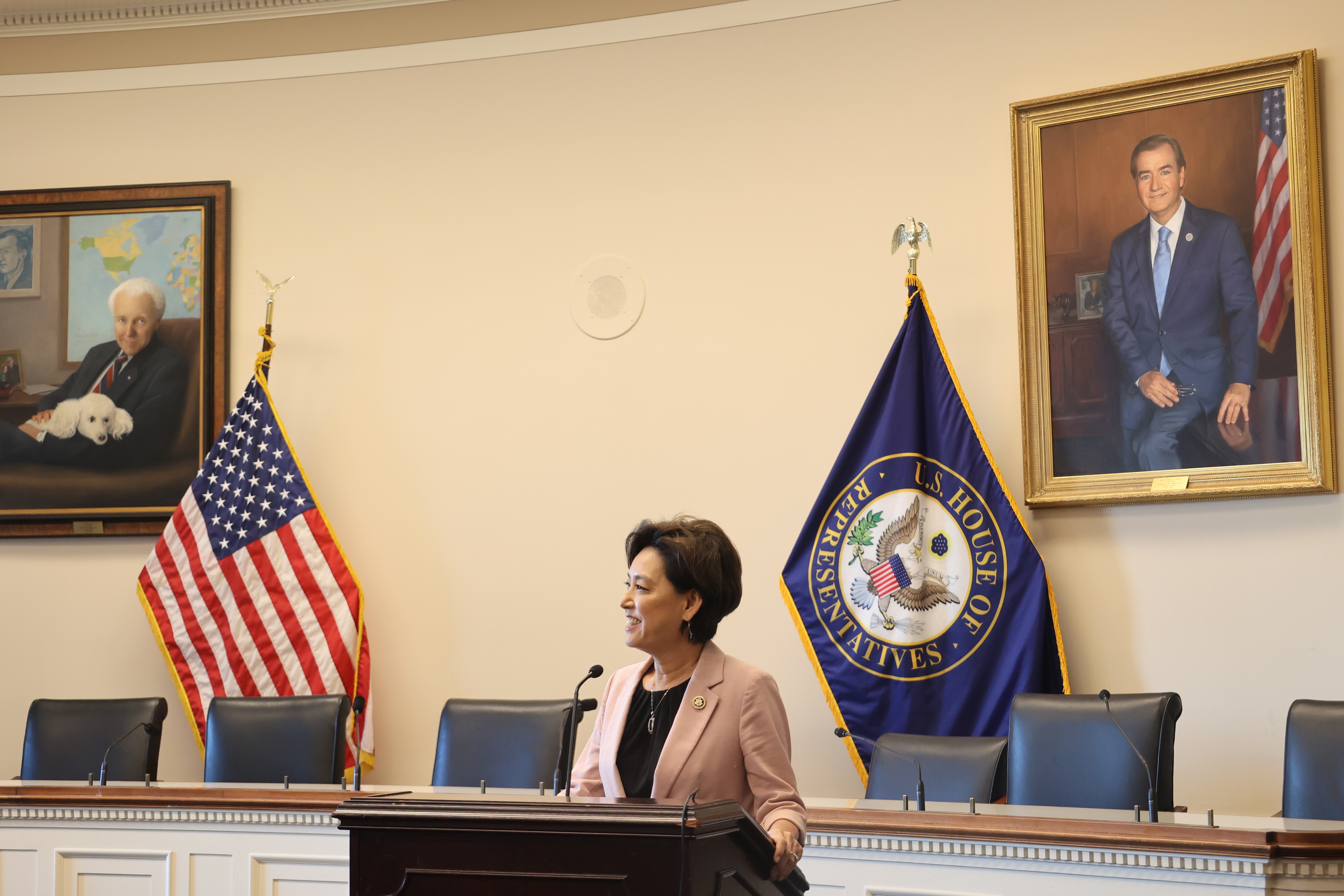- One supports including Taipei in IMF while another directs regulators to exclude Beijing from banking organisations over threats to self-ruled island
- California Republican Young Kim says her bill meant to send Taiwanese “a strong message of solidarity and support for their democracy”
The US House of Representatives advanced three bipartisan finance bills concerning Taiwan and mainland China on Friday, bringing legislation meant to bolster American support for the self-ruled island closer to becoming law.
The first of the three, sponsored by California Republican Young Kim, supports including Taiwan as a member of the International Monetary Fund.
The second, introduced by Oklahoma Republican Frank Lucas, directs regulators to exclude the People’s Republic of China from banking organisations if the US president notifies Congress of threats to Taiwan arising from Beijing’s actions.
The third, sponsored by Pennsylvania Republican Dan Meuser, requires the US Treasury to push Beijing for greater transparency in its exchange rates at the IMF.
The first two bills passed the Republican-controlled House by voice vote, and Meuser’s bill passed 379-1. Now the bills must pass the full Democratic-controlled Senate before heading to President Joe Biden to be signed into law.
Washington in recent months and years has increasingly backed Taiwan’s participation in international organisations while raising concerns about Beijing’s active role in them.
Friday’s developments came just ahead of Taiwan’s pivotal presidential election on Saturday in which the ruling Democratic Progressive Party faces a strong challenge from the more conservative and Beijing-friendly Kuomintang.
Speaking on the House floor on Wednesday, Kim urged colleagues to vote in favour of her bill to “send the Taiwanese people a strong message of solidarity and support for their democracy”.
Beijing sees Taiwan as part of China, to be reunited by force if necessary. Most countries, including the US, do not recognise Taiwan as an independent state, but Washington is opposed to any attempt to take the self-governed island by force and is committed to supplying it with weapons.
China also opposes Taiwan’s participation in international institutions. Taiwan has not yet requested membership in the IMF, which does not recognise it as an independent state.
Kim’s bill, the Taiwan Non-Discrimination Act of 2023, would require the US Treasury to actively support Taiwan’s admission into the IMF, employment for Taiwanese nationals at the body and Taipei’s participation in the fund’s monitoring of the self-ruled island.
“IMF membership for Taiwan would also unlock the potential for membership in other international financial institutions, such as the World Bank and Inter-American Development Bank,” stated a congressional report from December.
Ever since Beijing began to set out ambitious timelines for the People’s Liberation Army’s modernisation, Washington has speculated that an attack on Taiwan may be imminent.
If a US president were to determine there was a threat from Beijing to “the security or the social or economic system of the people on Taiwan and any danger to the interests of the United States”, Lucas’s Protect Taiwan Act would make it US policy to exclude China from the Group of 20 and bodies like the Bank for International Settlements and the International Organisation of Securities Commissions.
Speaking in support of Lucas’ bill, House Financial Services Committee chairman Patrick McHenry, a North Carolina Republican, said it would make China a “pariah in key organisations devoted to ensuring global economic stability”.
If the US effort succeeds, China would face exclusions similar to Russia after its invasion of Ukraine.
Washington has increasingly accused Beijing of not being transparent about its exchange-rate policies.
Meuser’s China Exchange Rate Transparency Act of 2023 would require the Treasury to push the IMF to publish any significant divergences between Chinese exchange-rate policies and those of other major economies.
It would also require the Treasury to urge IMF members to more seriously consider China’s performance as a “responsible stakeholder” when considering increases to its shareholding at the fund.
“China has promised to maintain orderly exchange-rate arrangements without manipulation,” Meuser said on Wednesday. “It is our job to hold them to that promise and to ensure they do not continue to exploit the system to their advantage.”
In framing its recommendations, the bill cited a 2022 assessment by the Treasury, which notes that China has provided “very limited transparency regarding key features of its exchange-rate mechanism” and calls the country an “outlier among major economies”.
The same report, along with a more recent Treasury assessment from November, refrains from naming any country as a foreign-exchange manipulator – a designation the Treasury previously gave China.




